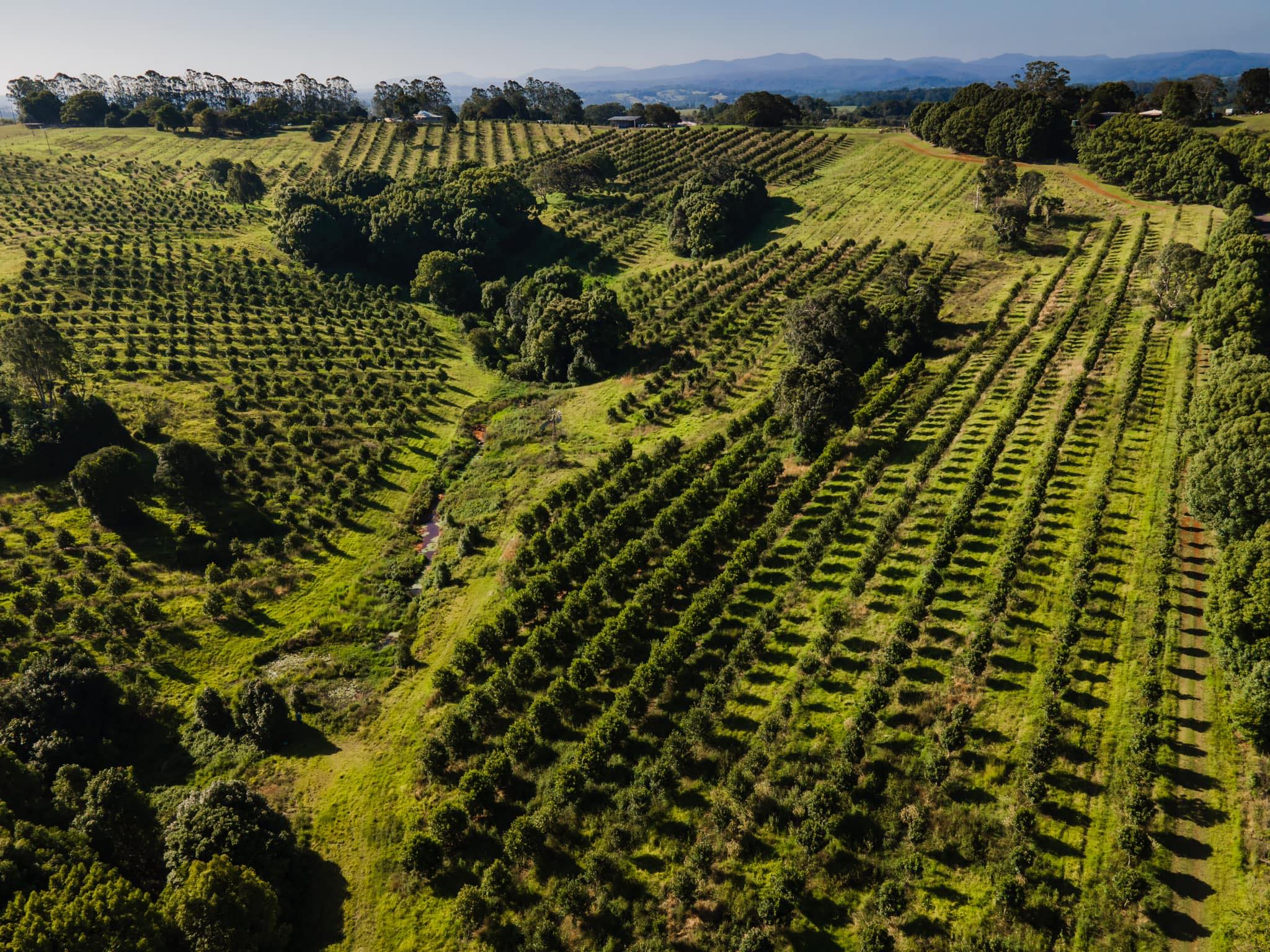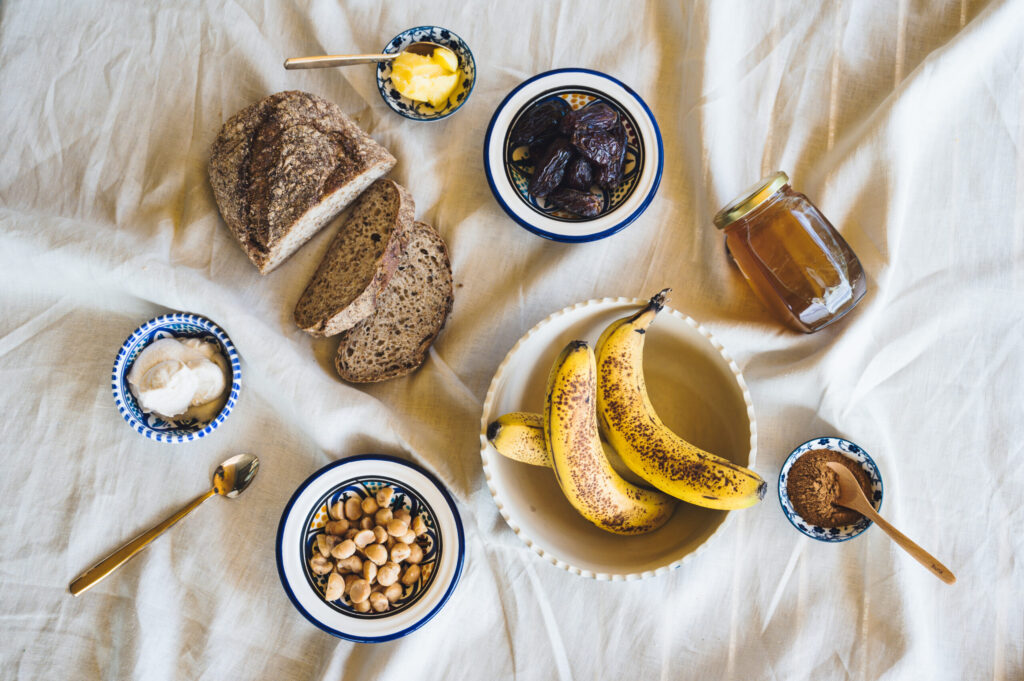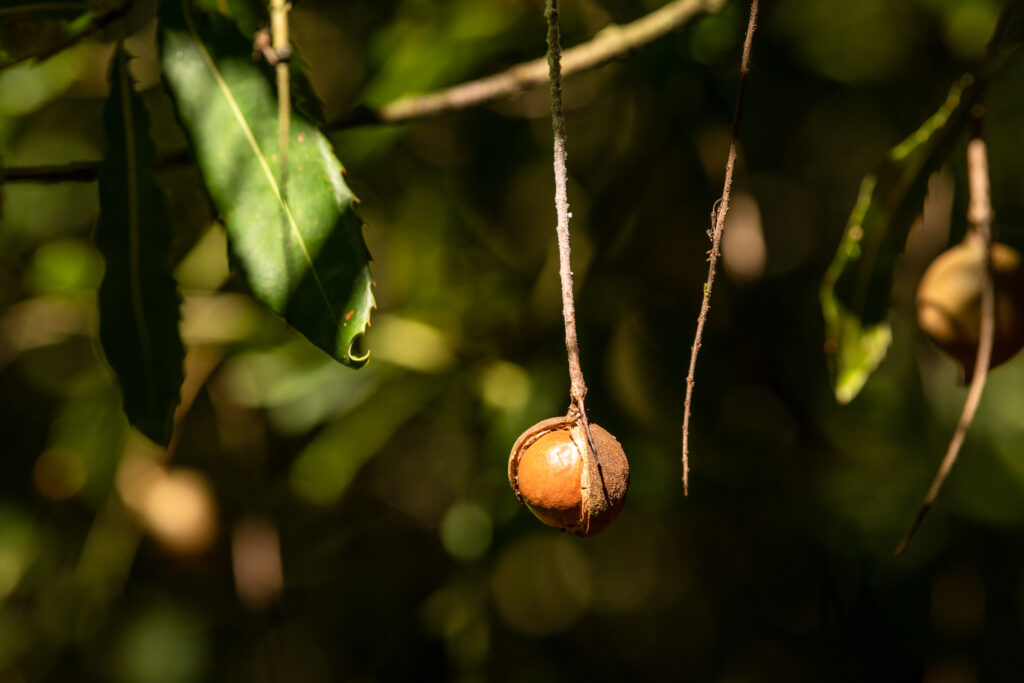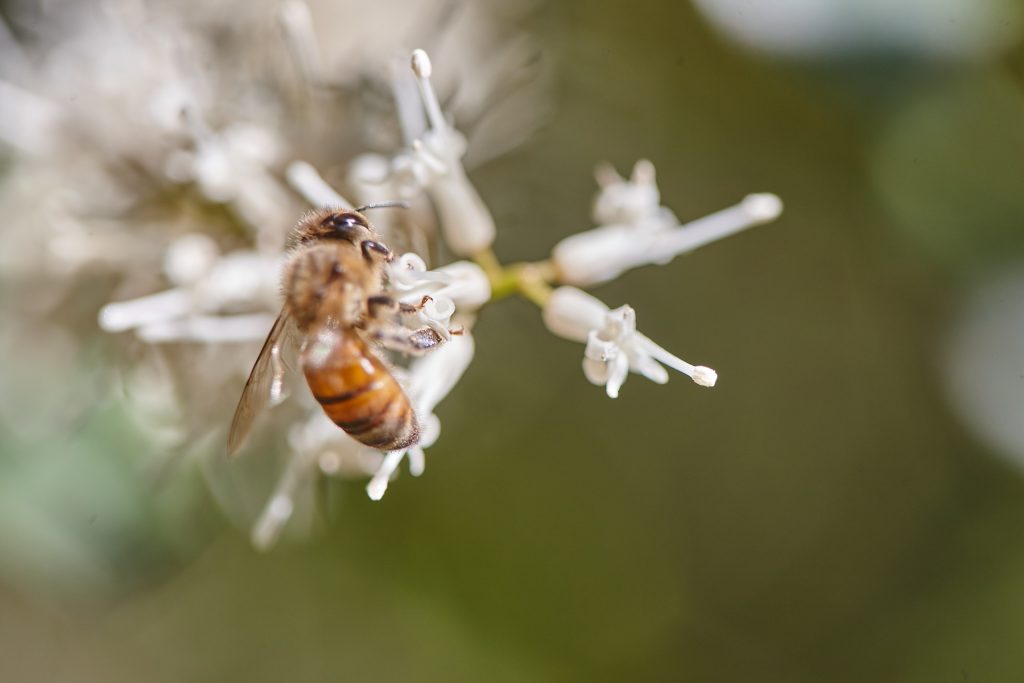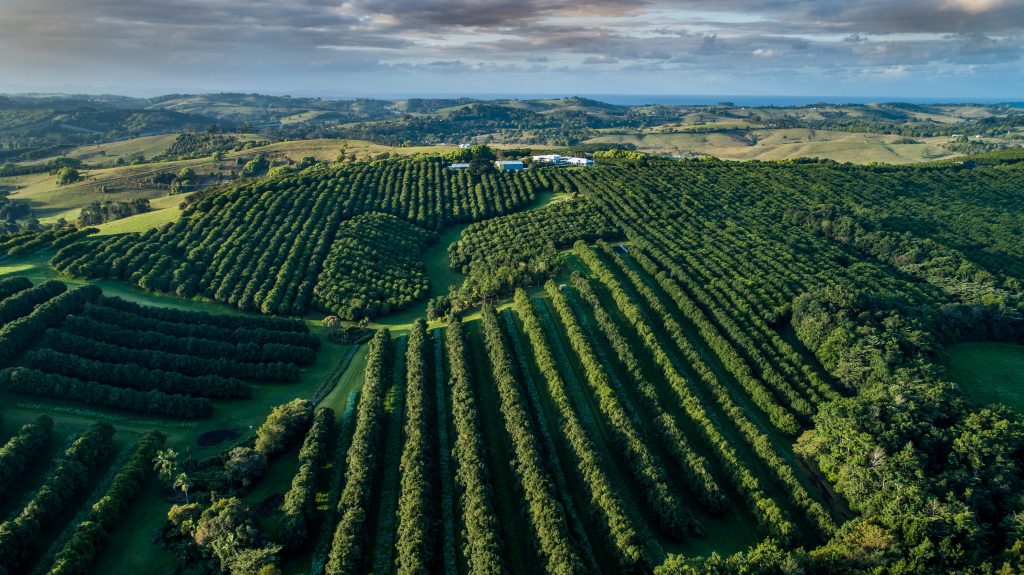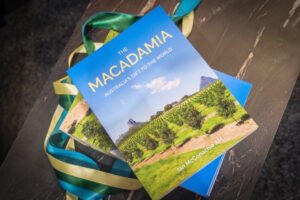Banyula is an integrated regenerative agriculture and reforestation project near Clunes in the Northern Rivers of NSW.
With its Big Scrub rainforest remnants, native food orchards, river and grazing ecosystems, the property sits at the intersection of forest and farm.
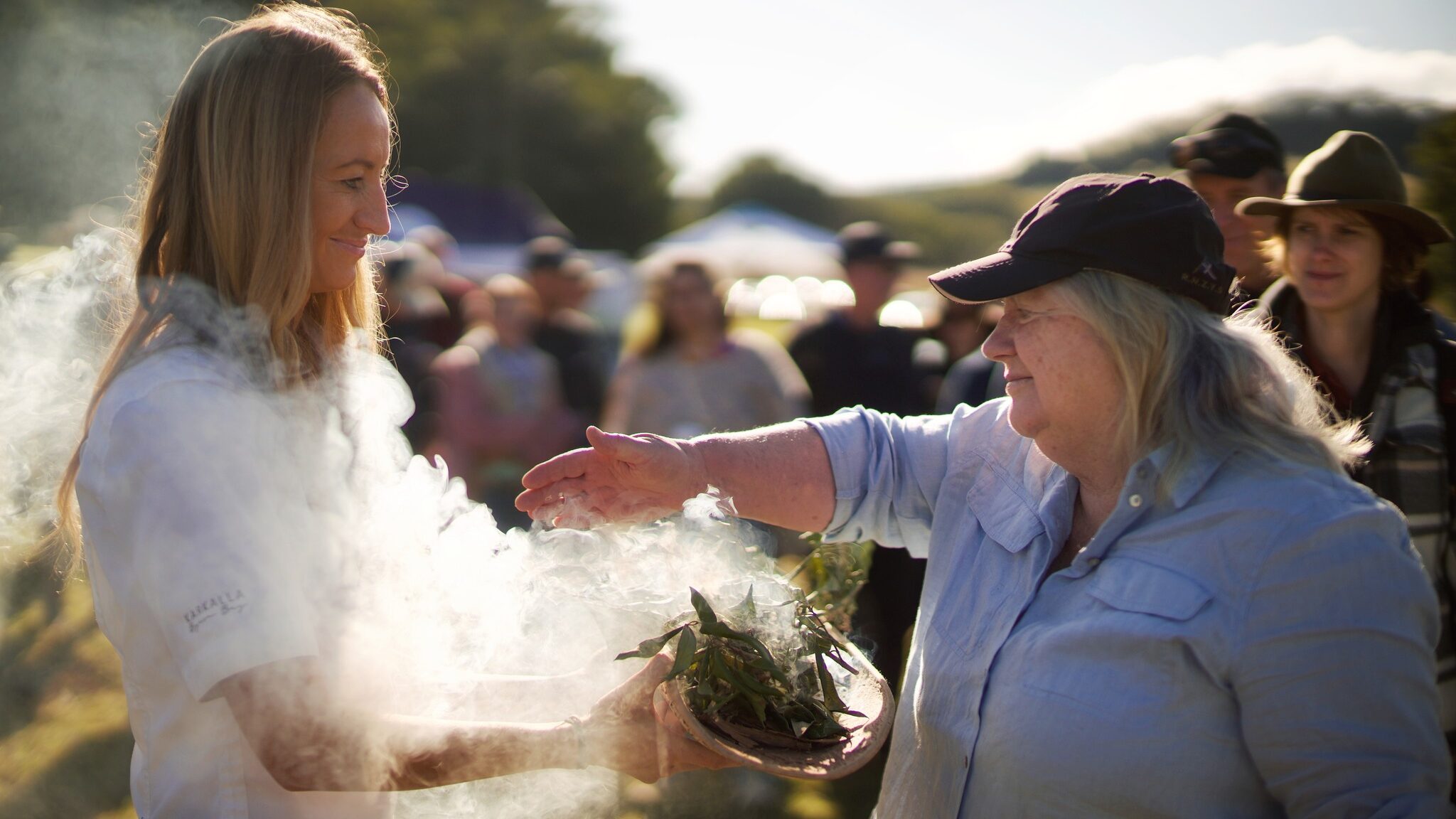
The team at Banyula includes owners Richard Schweger and Nicole Bollschweiler, director Matthew Bleakley and his wife Shae, and operations manager Vinesh Pasad. Together they aim to restore the natural environment on the 370 ha property while also developing a sustainable enterprise. Along with macadamias, Banyula grows a variety of bush foods including finger limes and Davidson plums.
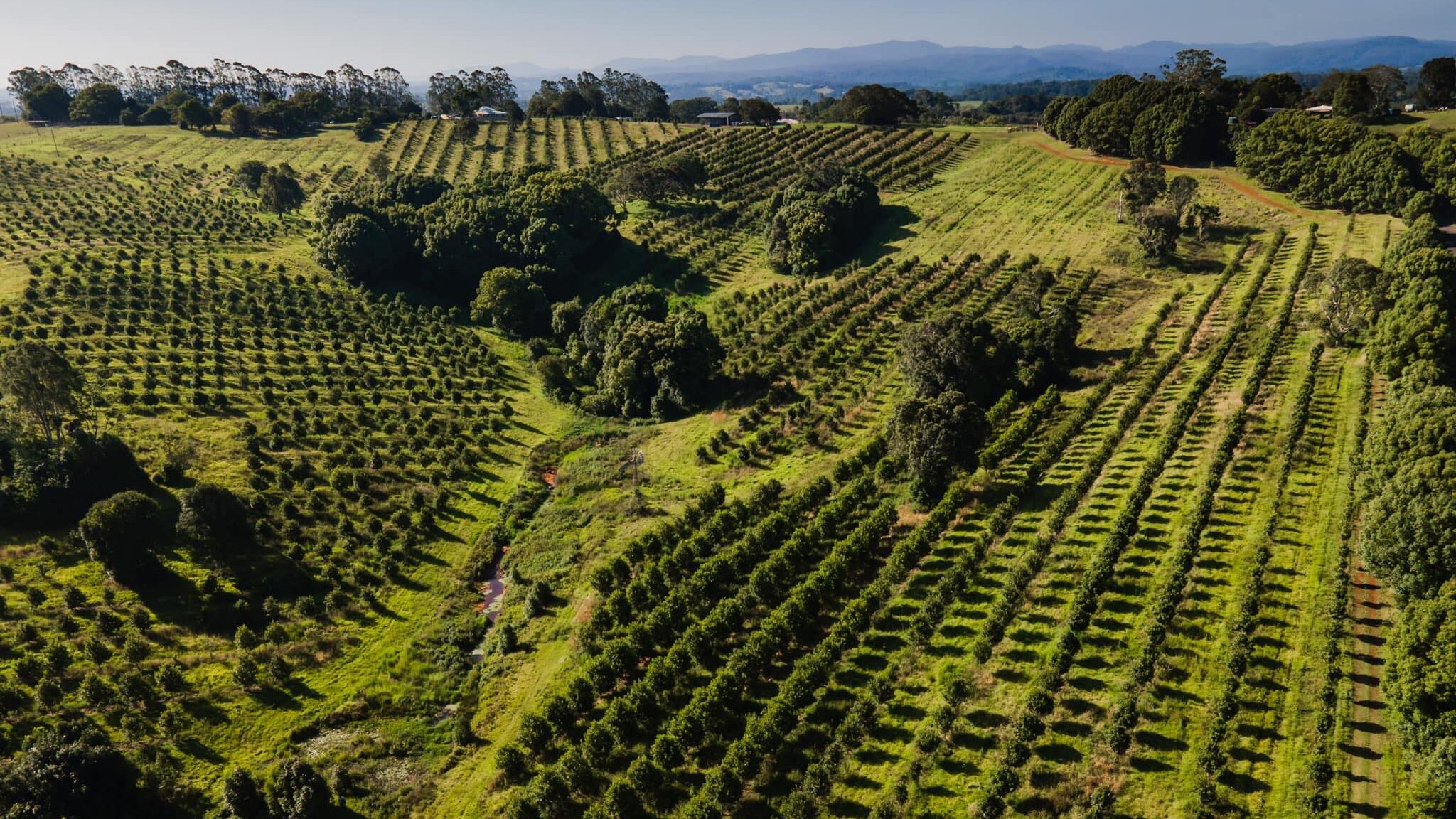
Regenerative agriculture and agroforestry
Regenerative agriculture and holistic techniques are key to the work at Banyula. The team sees the soil as a life form that needs to be nourished as much as any other, leading them to employ inter-row and cover crops, no-till farming, composting, mulching, and extensive monitoring for soil health. Agroforestry principles also underpin the management of the farm’s herd of 350 cattle.
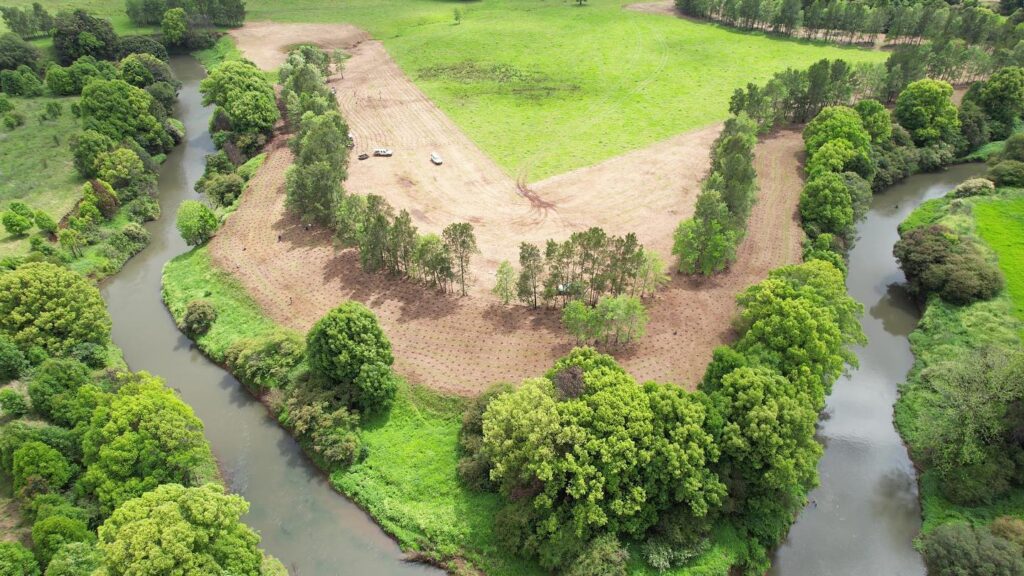
Banyula uses whole-of-landscape management principles based on regenerative and natural sequence farming approaches. This includes designing the farm based on its natural contours. “Overall, we have an open-source approach. We want to share our farming systems and learn from others,” said Vinesh, Banyula’s operation manager.
Sharing the biodiversity vision
Banyula works collaboratively with groups like ReForest Now and the Northern Rivers Community Foundation to boost the Big Scrub reforestation efforts. So far, they have sown more than 260,000 rainforest plantings. Banyula is also home to what the team jokingly refer to as ‘the Koala resort’, a large-scale eucalyptus planting made possible via a collaboration with Climate Friendly and WWF.
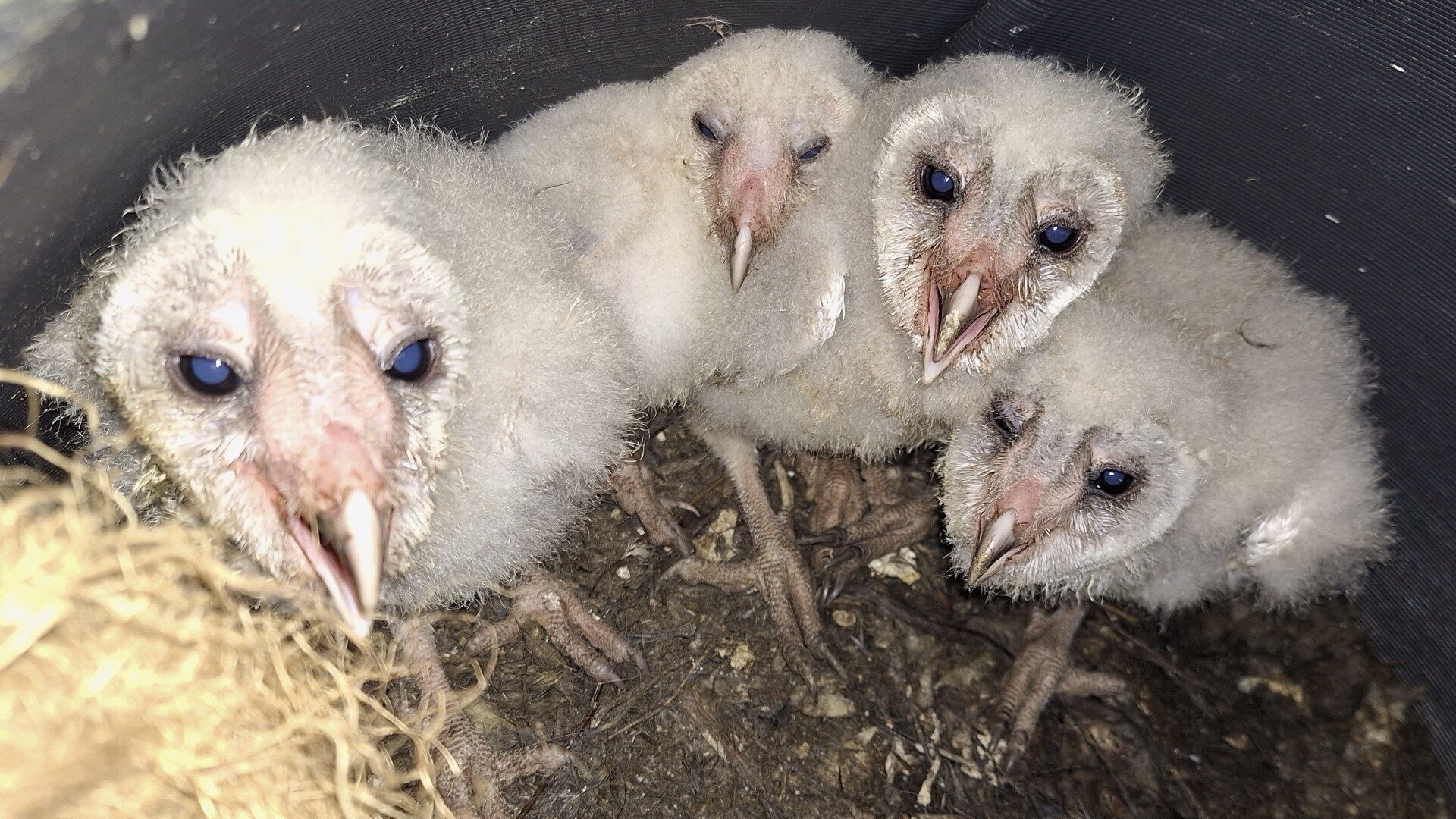
Promoting biodiversity in this way comes with challenges. “One distinctive challenge we face arises from our proximity to the native forests,” says Vinesh. “This presents the unique dynamic of having to contend with various diseases and unwanted pests such as rats, while also benefiting from the ecosystem’s natural controls such as beneficial insects and animals.”
However, the team is committed to natural controls and has installed several habitat boxes on the property. Five owlets recently hatched in one of these boxes, and over a 14-day period, the adult owls delivered 139 rodents to the young ones. “It’s a very environmentally friendly way of keeping the rodent population down,” says Vinesh.
